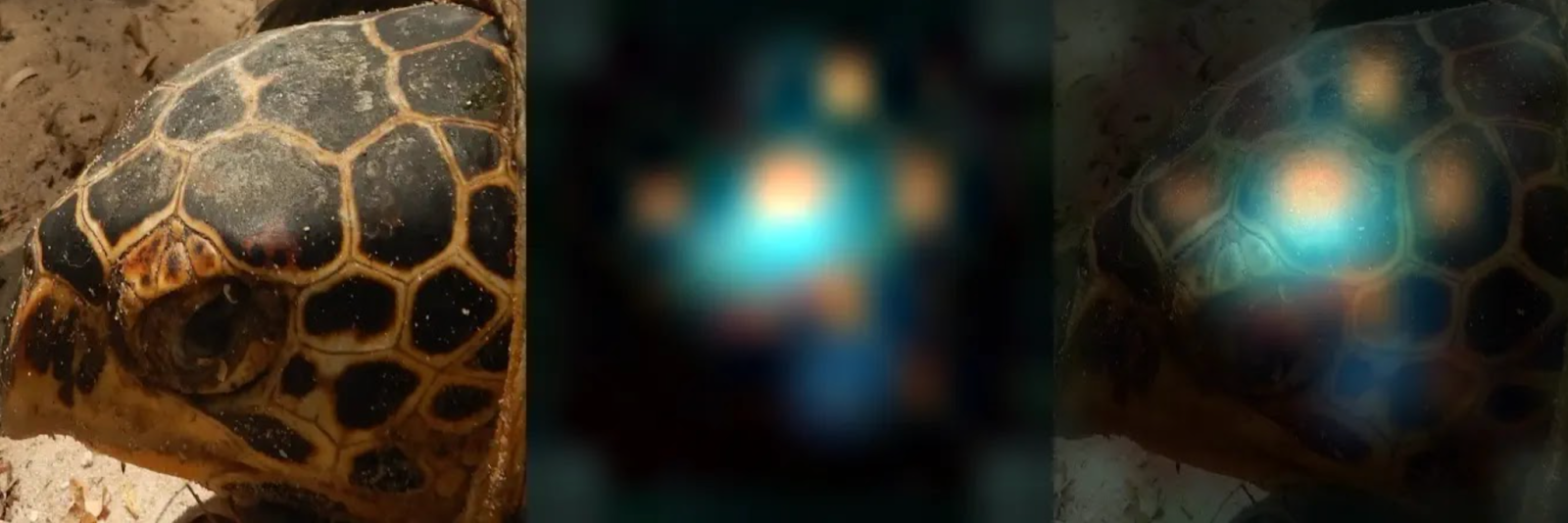Discovering options to enhance turtle reidentification and supporting machine studying initiatives throughout Africa
Defending the ecosystems round us is vital to safeguarding the way forward for our planet and all its dwelling residents. Thankfully, new synthetic intelligence (AI) methods are making progress in conservation efforts worldwide, serving to sort out advanced issues at scale – from studying the behaviour of animal communities in the Serengeti to assist preserve the diminishing ecosystem, to spotting poachers and their wounded prey to stop species going extinct.
As a part of our mission to assist profit humanity with the applied sciences we develop, it is essential we guarantee numerous teams of individuals construct the AI methods of the long run in order that it’s equitable and honest. This consists of broadening the machine studying (ML) group and interesting with wider audiences on addressing essential issues utilizing AI.
By means of investigation, we got here throughout Others – a devoted companion with complementary targets – who’re the biggest group of African knowledge scientists and host competitions that concentrate on fixing Africa’s most urgent issues.
Our Science team’s Variety, Fairness, and Inclusion (DE&I) workforce labored with Zindi to determine a scientific problem that might assist advance conservation efforts and develop involvement in AI. Impressed by Zindi’s bounding box turtle challengewe landed on a undertaking with the potential for actual influence: turtle facial recognition.
Biologists take into account turtles to be an indicator species. These are courses of organisms whose behaviour helps scientists perceive the underlying welfare of their ecosystem. For instance, the presence of otters in rivers has been thought of an indication of a clear, wholesome river, since a ban on chlorine pesticides within the Nineteen Seventies introduced the species again from the brink of extinction.
Turtles are one other such species. By grazing on seagrass cowl, they domesticate the ecosystem, offering a habitat for quite a few fish and crustaceans. Historically, particular person turtles have been recognized and tracked by biologists with bodily tags, although frequent loss or erosion of those tags in seawater has made this an unreliable technique. To assist clear up a few of these challenges, we launched an ML problem referred to as Turtle Recall.
Given the extra problem of maintaining a turtle nonetheless sufficient to find their tag, the Turtle Recall problem aimed to avoid these issues with turtle facial recognition. That is doable as a result of the sample of scales on a turtle’s face is exclusive to the person and stays the identical over their multi-decade lifespan.
The problem aimed to extend the reliability and pace of turtle reidentification, and probably provide a technique to substitute using uncomfortable bodily tags altogether. To make this doable, we wanted a dataset to work from. Thankfully, after Zindi’s earlier turtle-based problem with Kenyan-based charity Local Ocean Conservationthe groups had been kindly capable of share a dataset of labelled photographs of turtle faces.

The competitors began in November 2021 and lasted 5 months. To encourage competitor participation, the workforce applied a colab notebookan in-browser programming atmosphere, which launched two frequent programming instruments: JAX and Haiku.
Members had been tasked with downloading the problem knowledge and coaching fashions to foretell a turtle’s id, as precisely as doable, given {a photograph} taken from a particular angle. Having submitted their predictions on knowledge withheld from the mannequin, they had been capable of go to a public leaderboard monitoring the progress of every participant.
The group engagement was extremely constructive, and so was the technical innovation displayed by groups in the course of the problem. Throughout the course of the competitors, we acquired submissions from a various vary of AI fanatics from 13 completely different African international locations – together with international locations not historically effectively represented on the greatest ML conferences, equivalent to Ghana and Benin.
Our turtle conservation companions have indicated that the participant’s stage of prediction accuracy might be instantly helpful for figuring out turtles within the subject, which means that these fashions can have an actual and quick influence on wildlife conservation.
As a part of Zindi’s continued efforts to help climate-positive challenges, they’re additionally engaged on Swahili audio classification in Kenya to assist translation and emergency providers, and air quality prediction in Uganda to enhance social welfare.
We’re grateful to Zindi for his or her partnership, and all those that contributed their time to the Turtle Recall problem and the rising subject of AI for conservation. And we stay up for seeing how folks around the globe proceed to search out methods to use AI applied sciences in the direction of constructing a wholesome, sustainable future for the planet.
Learn extra about Turtle Recall on Zindi’s blog and find out about Zindi at https://zindi.africa/
Author:
Date: 2022-08-24 20:00:00



